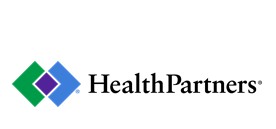Culturally Sensitive Communication
As the United States and the healthcare field become more diverse, an additional layer of complexity to the physician-patient-caregiver team arises. This provides an opportunity to create an exceptional experience for every patient and caregiver, but requires skills to deliver moment-to-moment respectful, compassionate, and sensitive communication. In addition, effective communication is essential to fully understand the patient’s health needs and craft an appropriate and meaningful care plan.
When considering diversity, physicians and the clinical team needs to be mindful of not only ethnic diversity, but also differences in economic status, religious beliefs, weight, height, gender and more. Cultural beliefs have many dimensions, including decision-making styles, healing traditions, spirituality, expectations and assumptions about privacy/disclosure, status/hierarchy, socio-economic status and immigration status.
To equip our healthcare professionals with the necessary skills to successfully navigate an increasingly diverse environment, excellent core communication skills including mindfulness, reflective listening, accurate and efficient information gathering, joint-agenda setting, and recognizing the emotion of the patient/colleague and responding appropriately are necessary but not sufficient. Healthcare professionals must be able to identify any underlying/existing personal biases and how those biases may impact interactions, the overall provider-patient relationship and, ultimately, clinical outcomes, safety, and efficiency.
The Culturally Sensitive Communication course is a four-hour module designed to further enhance learners’ ability to communicate in an effective manner with patients and colleagues from diverse backgrounds and cultures. The course is interactive, featuring introductory materials, videos, small group activities and large group discussions. The course is offered to physicians, allied healthcare professionals and administrative staff of all backgrounds.
Target Audience
Health Equity Cabinet members, physicians, allied healthcare professionals and administrative staff of all backgrounds.
Learning Objectives
Following this activity, learners will be able to:
- Recognize how personal and cultural beliefs affect our decision making and how we interact with patients and colleagues.
- Determine how core communication skills are foundational for culturally sensitive communication.
- Assess the nature of assumptions and biases.
- Identify the impact of healthcare disparities.
- Evaluate the richness of diversity as an asset rather than as a hindrance in achieving individual and team peak performance.
Faculty and Planning Committee:
Due to the nature of the content being presented no faculty or planning committee member has a potential conflict of interest or relevant financial relationships to identify or disclose. Faculty does not intend to discuss any off label use of a commercial product.
Jen Augustson - HealthPartners Institute
Jennifer Krippner - The Institute for Healthcare Excellence
William Maples, MD - The Institute for Healthcare Excellence
Linda Scaz PhD, RN - The Institute for Healthcare Excellence
Yeng Yang, MD - HealthPartners Medical Group
HealthPartners is accredited by the Accreditation Council for Continuing Medical Education (ACCME) to provide continuing medical education for physicians.
HealthPartners Office of Continuing Medical Education designates this live activity for a maximum of 4.0 AMA PRA Category 1 Credit(s)™. Physicians should claim only the credit commensurate with the extent of their participation in the activity.
Available Credit
- 4.00 AMA PRA Category 1 Credit™
- 4.00 AttendanceThis program is designed to meet the Minnesota Board of Nursing’s requirements. It is the responsibility of each nurse to determine if the program meets the criteria for licensure or recertification in their discipline.

 Facebook
Facebook X
X LinkedIn
LinkedIn Forward
Forward